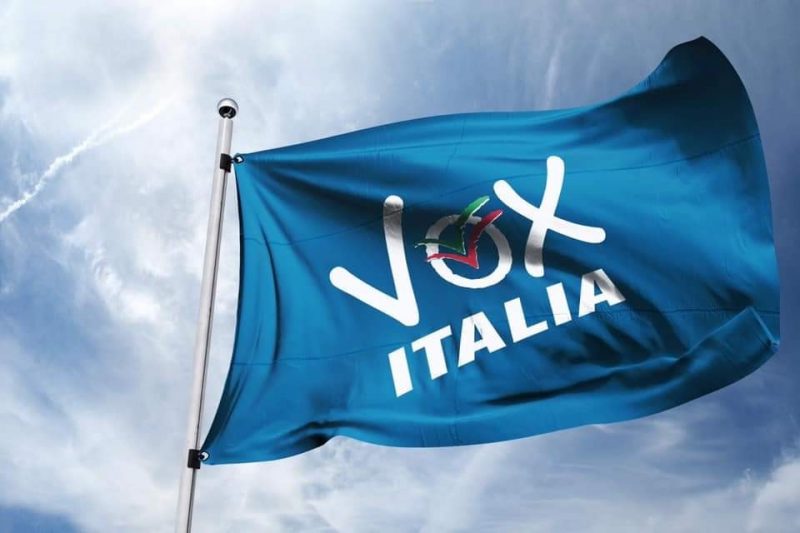Brexit, the crisis of NATO and the mass protests movements kicking off across numerous European countries all demonstrate the increasing instability of the EU elites’ political structure. Recent political phenomenons across the European political scene are showcasing the appearance of new political subjects and actors. The yellow vest movement in France has shown that there are new players in European political life aside from the classic political parties, which are now operating in the shadows to keep their hold on power.
The Yellow Vests Movement
The Yellow Vest movement appeared in November of 2018 in reaction to French President Emmannuel Macron’s decision to raise petrol and diesel prices. The movement started as a protest against neo-liberal economic reforms and transformed into a full on political movement with the slogan “Macron Demission” (Macron, resign!) before developing into nothing short of a revolution against the capitalist elite. The yellow vest movement was positively assessed by both right-wing politicians (such as Marine Le Pen) and the radical left leader Jean-Luc Melanchon.
The decentralized movement celebrated its first birthday in November 2019 proving its sustainability and permanence. In October 2019, only 35% (as opposed to 45% in April 2018) of the French population said they were satisfied with Macron’s leadership, proving the movements effectiveness.

Vox Italia
The movement ‘Vox Italia’ was founded in 2019 by the philosopher Diego Fusaro. After the crisis of the 5 Star/ Lega alliance of left and right wing political movements, the Vox Italia movement has continued to push an economically socialist ideology and right-wing traditionalist orientation. Diego Fusaro immediately became one of the top-quoted politicians in Italy after founding the party. The movement is a socialist, antiliberal, political and cultural movement which is fully dedicated to the rights of people and national sovereignty. It rejects the idea of a left-right wing division, which, according to Diego Fusaro, is an idea which must be left in the past (XX century). The movement is strongly critical of the political elite who they believe have betrayed the people’s interests.

The movement opposes single-minded thinking: its leaders believe that it is necessary to blend left-wing ideas and right-wing values. Important Leftist ideas include work, social rights, a sense of community and bonum commune, as well as anti-utilitarian solidarity. Right-wing values include a patriotic nation-state as a fortress against liberalist privatization, an emphasis on the family against the individualistic atomisation of society, loyalty and honour against the “empire of the ephemeral” and liberal consumerist superficiality and a religion of transcendence which serves as an opposition to the idolatrous monotheism of the market and the nihilistic atheism of the commodity form.
The party did not participate in elections, but has good electoral prospects given the deep crisis within the 5 Star movement.
Forum for democracy (Forum voor Democratie)
In 2016, the Dutch political philosopher Thierry Baudet launched the ‘Forum for Democracy movement.’ In 2017, he became a member of the House of Representatives. Baudet’s movement advanced a Eurosceptic and conservative political agenda. One of the points on his political agenda is the withdrawal of Netherlands from the EU. Baudet supported Brexit and had sympathies with the yellow vests. The movement is committed to the fight against “cultural Marxism” (the spread of the liberal values through the intellectual sphere). Baudet accuses the European Union of being “a Cultural Marxist project, with the aim of destroying European Civilization.”
In 2019, the movement won the highest number of seats (14.53%) in the country’s provincial elections.
Vox (Spain)
Unlike Vox Italia, the Spanish political party of the same name is emphatically right-wing, albeit populist. The party was founded in 2013 by politicians who broke away from the center-right People’s Party. Today it is led by Santiago Abascal Conde, basque, who is calling for a new Reconquista.
Vox had not been represented in the Spanish legislature for a long time, so when they won 12 parliamentary seats in the Andalusian regional election in December 2018, the news shocked the political establishment. In the April 2019 general election they received 10.26% of votes and for the first time entered Spanish Congress of Deputies. In May, they entered the European parliament for the first time, receiving 6.2% of the vote.
The ongoing political crisis in Spain resulting from mass migration, Catalonian separatism and the Socialist Government to exhume and rebury the remains of former dictator Generalissimo Francisco Franco lead to a rise in rightist sympathies in Spanish society, which Vox capitalized on.
https://uwidata.com/6217-spain-endless-general-elections/
After the snap election in Spain on November 10, Vox became the third largest party in the Spanish parliament. It received 15.1% of the vote but doubled the number of seats from 24 to 52. It has become the central opposition to the governing leftist coalition.
Despite the populist nature of the movement, it is also an explicitly pro-Israeli movement and has strong (financial ties) with National Council of Resistance of Iran, which is close to the US and opposes the Islamic Republic of Iran.
Greta Thunberg’s environmentalist ‘movement’
Among the website’s top 28-influential people of 2019, Politico named 16-year-old Swedish ecologist activist Great Thunberg. The young girl became the face of the new ecologist movement, supported by various left-liberal groups. She immediately gained popularity and was invited to give a speech in the European Parliament. She quickly served to help reboot interest on the green front. Some experts underline her connections to George Soros: an ultra globalist, who supports the main green parties in the EU.
https://uwidata.com/5495-gretacalypse-now-greta-thunberg-as-a-guardian-of-capitalism/
Even the growing popularity of the so-called “green-wave” parties shows that the traditional conservative, liberal and socialist parties that were once dominant in most European countries, are less and less satisfactory to the population.
Most of the new movements are populist. Many of them are trying to cross broader right / left divisions, combining slogans and ideas from both sides. The main principle of the new movements is the fight against the establishment.
https://uwidata.com/5589-gretacalypse-now-environmentalists-destroy-families-and-sell-children-into-slavery/
However, these emerging movements can either be based in a real fight as is the case for the Yellow Vests or the Vox Italia movement, or, they might simply simulate one. The ‘Skolstrejk för klimatet’ (School strike for the climate) initiated by Greta Thunberg is an example of such a simulacra movement, which in reality enjoys the support of prominent globalists like George Soros and Al Gore.

















Leave a Reply